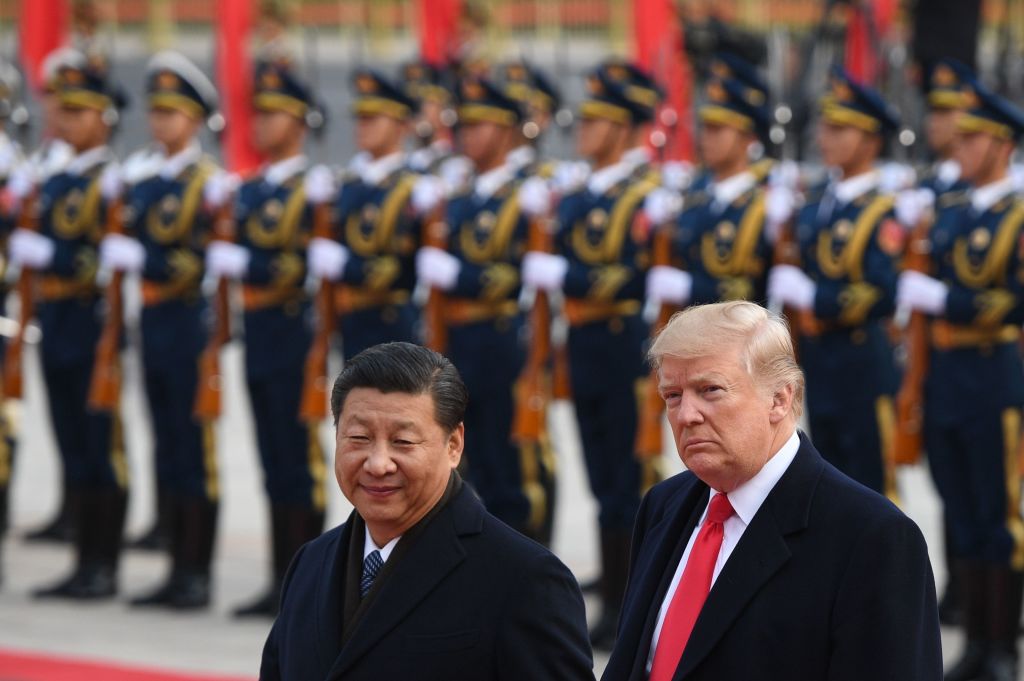Donald Trump has returned to form as the self-described “tariff man” by threatening Mexico, Canada and China with tariffs of up to 25% on “day one” of his presidency in January. Mexican President Claudia Sheinbaum has responded by saying that Trump’s complaints about drugs flowing across the border were an “American problem”, and that her country would impose tariffs of its own if the incoming US administration followed through.
The dust-up reveals the divided priorities which exist within the prospective Trump administration. The President-elect sees tariffs as a means both to protect American industry and to threaten countries pursuing policies that he perceives as damaging to the US. When Trump talks about “America First”, he really means it: the policies he prefers are aimed at shoring up American industry and closing the borders. In economic terms, this means the “reshoring” of firms which have left the United States.
Trump’s priorities, however, are likely to conflict with the goals of the policymakers who carried his protectionist policies into the Biden administration. These people tend to be foreign policy hawks — such as current National Security Advisor Jake Sullivan — who are concerned about the rise of China and want to stifle Beijing’s growth through a combination of tariffs and sanctions, especially against semiconductors.
While both policies may appear similar, in that they each make use of protectionist measures, it will not be long until they come into conflict with one another. Take the example of “friendshoring”, the idea that manufacturing currently undertaken in China — which would be too expensive in America — should be undertaken in “friendly” countries instead. Mexico, with its relatively low labour costs, has been key to this friendshoring concept.
But if Trump wants to impose tariffs on Mexico this obviously conflicts with the aims of those who want to pursue friendshoring, because the goods which are supposed to replace Chinese products will also be subject to tariffs. The reason for this is clear: despite both policies being broadly protectionist, they have different aims. Friendshoring advocates simply want to stifle China’s economy but do not really care about American jobs, while Trump himself is far less concerned with the Chinese economy and more focused on trying to return jobs to the US.
The deck is stacked against Trump in this debate. American business has never been enthusiastic about a trade war with China because it would lose access to cheap, highly-trained labour. If these companies can tap labour from countries such as Mexico or Vietnam, they can live with this. Because friendshoring and reshoring are broadly nestled under the category of protectionist policy, expect the American corporate sector to push hard for the former at the expense of the latter.
So far, the evidence shows that friendshoring does not actually work. If tariffs are imposed on China but not on Mexico, the incentive is for Chinese companies to simply partner with an intermediary company in Mexico. The Chinese company can construct all the major components of a product, ship it to Mexico for final assembly, collect the “Made in Mexico” stamp and pass into the United States tariff-free. Recent studies show that this is exactly what is happening.
Trying to prevent this through secondary tariffs on, say, Mexico is a fruitless exercise — because the supply chain will just extend further. So, for example, China will send the parts to Colombia, which will then ship them to Mexico so that they are registered as Colombian rather than Chinese imports. Governments in every country in the chain are strongly incentivised to look the other way. If the Trump administration spends its time playing “supply chain whack-a-mole”, it will truly be a wasted four years.











Join the discussion
Join like minded readers that support our journalism by becoming a paid subscriber
To join the discussion in the comments, become a paid subscriber.
Join like minded readers that support our journalism, read unlimited articles and enjoy other subscriber-only benefits.
Subscribe